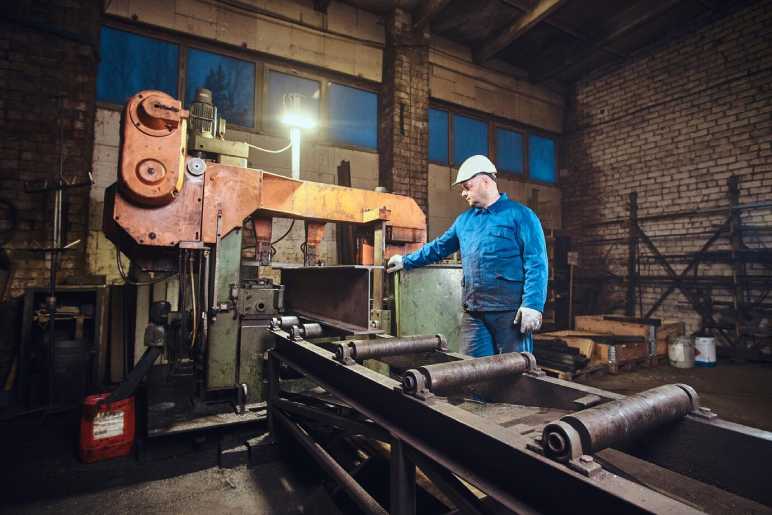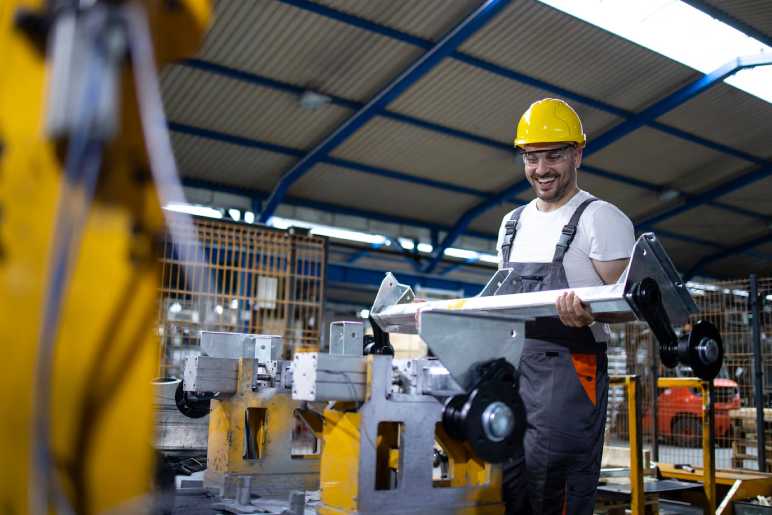The industrial sector is the backbone of modern economies, and within it lies a diverse range of exciting career opportunities – industrial specialties. But is this the right path for you? This guide explores the ins and outs of industrial specialties, helping you decide if it aligns with your interests and goals.
What are Industrial Specialties?


Industrial specialties encompass a broad spectrum of careers focused on the design, development, operation, and maintenance of industrial equipment and systems. These roles play a crucial part in ensuring efficient production processes, upholding quality standards, and fostering safe work environments across various industries like:
- Manufacturing
- Power generation
- Oil & Gas
- Robotics
- Automation
- Transportation
Why Consider a Career in Industrial Specialties?


Industrial specialties offer a compelling blend of factors that make it an attractive career choice:
- Diverse Opportunities: The field boasts a wide range of specializations, catering to various skillsets and interests. You could be an industrial mechanic troubleshooting complex machinery, an industrial engineer optimizing production lines, or an industrial designer crafting the next generation of industrial tools.
- Competitive Salaries and Benefits: Industrial specialty jobs often come with competitive compensation packages, including attractive salaries, comprehensive benefits packages, and potential for bonuses.
- Job Security and Growth: The industrial sector is a mainstay of global economies. With continuous advancements in automation and technology, the demand for skilled professionals in industrial specialties is expected to remain strong, offering job security and opportunities for advancement.
- Hands-on and Rewarding Work: If you enjoy working with your hands, solving problems, and seeing tangible results, industrial specialties can be incredibly fulfilling. You’ll contribute directly to the creation of essential products and infrastructure, playing a role in building the world around us.
Exploring Different Specialties


The industrial specialties landscape is vast, so here’s a glimpse into some popular career paths:
- Industrial Engineering Technicians: Assist industrial engineers in designing, developing, and implementing production processes and systems.
- Industrial Machinery Mechanics: Install, maintain, and repair industrial machinery, ensuring its optimal performance.
- Industrial Automation Technicians: Design, install, maintain, and troubleshoot automated systems used in industrial settings.
- Quality Control Inspectors: Ensure products meet predetermined quality standards through inspections and testing procedures.
- Industrial Designers: Develop and improve the design of industrial products, considering functionality, aesthetics, and user experience.
How to Get Started in Industrial Specialties


There are several paths to enter the exciting world of industrial specialties. Here are some key options:
- College Degrees: Earning a bachelor’s degree in engineering, industrial technology, or a related field can provide a strong foundation.
- Associate Degrees or Diplomas: These programs offer focused training in specific areas like industrial maintenance or automation, preparing you for entry-level positions.
- Apprenticeships: Apprenticeship programs combine classroom learning with on-the-job training under the guidance of experienced professionals. This is a fantastic way to gain valuable hands-on experience while earning.
- On-the-Job Training: Some companies offer on-the-job training programs for individuals with relevant skills or experience.
Important Skills for Industrial Specialties


In addition to technical skills specific to your chosen specialty, success in industrial specialties often hinges on developing the following:
- Mechanical Aptitude: A knack for understanding how machines work and solving mechanical problems.
- Problem-Solving Skills: The ability to analyze situations, identify issues, and develop effective solutions.
- Critical Thinking: The ability to assess information objectively and make sound decisions.
- Communication Skills: The ability to clearly communicate technical information to both technical and non-technical audiences.
- Attention to Detail: A meticulous approach to ensure accuracy and adherence to safety protocols.
Is a Career in Industrial Specialties Right for You?


Here are some questions to ponder as you evaluate if industrial specialties align with your aspirations:
- Do you enjoy working with your hands and solving technical challenges?
- Are you interested in the inner workings of complex machinery and systems?
- Do you thrive in fast-paced environments that demand focus and precision?
- Are you motivated by the prospect of contributing to tangible results?
If you answered yes to these questions, then industrial specialties might be the perfect fit for you. It offers a rewarding career path with excellent growth potential, allowing you to be part of the ever-evolving industrial landscape.
Taking the First Step


If you’re intrigued by the possibilities within industrial specialties, here are some initial steps:
- Research specific specialties that pique your interest.
- Explore educational programs or apprenticeship opportunities that align with your chosen path.
- Network with professionals in the field to gain insights and advice.
Feature image source:- https://tinyurl.com/dw8skk7b

